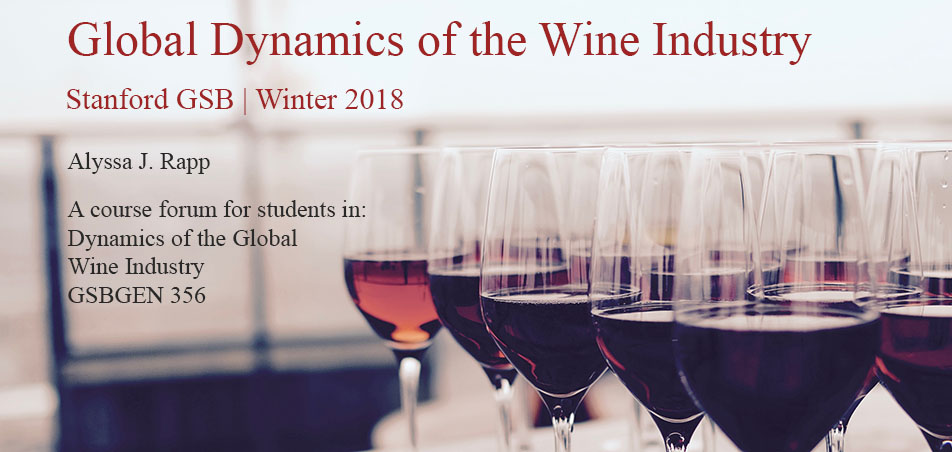After all the great presentations yesterday, I started
thinking about whether there were winery incubators. I imagine that many
passionate wine drinkers and business people that want to create new wine
brands may not have access to equipment, funds, winemaker talent, and industry
relationships. On the other hand, there may be many talented winemakers coming
out of places like UC Davis that would like to own their own winery and do not
want to give up creative control, but don’t have brand, marketing, and
operations experience. In many ways, the problem seems akin to GSB entrepreneurial
students wanting access to engineering talent and venture funding. There may
also be high net worth individuals in the wine industry that would like to
support emerging wine brands and invest in the next great winery or wine
company.
While brand marketing agencies exist for the wine industry
and there are certainly companies incubating their own brands, I do think there would be a business opportunity to
support and invest in new wine entrepreneurs, perhaps creating the Y Combinator
for wineries (wYne Combinator?).
I looked into this and some incubator-like programs to exist
to support wine entrepreneurs. For example in Walla Walla, the state government
and port authority funded a “wine incubator neighborhood” near the Walla Walla
Airport in the early 2000s, originally to support graduates from Walla Walla
Community College’s enology and viticulture program. Dr. Myles Anderson of
Walla Walla Vintners and Norm McKibben of Pepper Bridge Winery helped to design
the 5-building row of wineries. Each building was constructed to meet the
requirements necessary to operate a stand-alone, 2,000-case production winery
and tasting room. With a cheap monthly rent that slowly increases over time, the
fledgling wineries are allowed a maximum stay of six years.
The five incubator wineries in the Walla Walla Regional Airport wine district currently include Palencia Winery, Walla Faces, Corvus Cellars, J&J Vintners and Eternal Wines.
“The Incubator program put everything I needed in one place,
a marketable location, existing nearby winery businesses and a thoughtfully
designed production facility I could grow from,” says Victor Palencia, who
earned his winemaking degree from Walla Walla Community College in 2005. “Since
I didn’t have to make an immediate investment into retrofitting a building, I
was able to focus my energy on growth and expansion, quadrupling production in
the first year.”
Tasting room guests also appreciate supporting the incubator
wineries and tasting the wine right where it’s made. With low overhead, these
wineries are able to spend their cash flow on the best grapes and make higher quality
wines faster. Removing some of the barriers to starting a wine business may
allow investors to see proof of concept more quickly and double down with the
winners.
A more hands on approach, talented winemaker Bartho Eksteen
has developed the Wijnskool Entrepreneur Support Program (WESP) as an incubator
initiative on his new farm in the Hemel-and-Aarde Valley in South Africa.
With the first intake in 2015, eight businesses were
selected to be supported for three years. Aspiring wine entrepreneurs submitted
a business plan with an application to Eksteen. The program supports the entrepreneurs
in the areas they need, including funding, technical support, administrative
and marketing department development, personal development and more.
I don’t think it’s a coincidence that you see these types of
programs emerging in the regions that many of us picked for our midterm
assignments. Washington and South African wine regions are growing quickly, perhaps
due in part to a receptive and supportive climate to wine entrepreneurs. I’m
curious how the class feels about a “wYne Combinator” in Silicon Valley. Would
it succeed? Why or why not?

